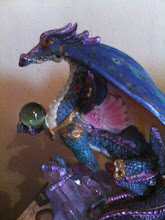Unions are threatening to strike on the day of the royal marriage (Wills and Kate) in April, and to also disrupt services during the Olympics. It's childish and preposterous behavior on the part of the unions for making the general public pay for their grievances. If you actually care about the wedding or the Olympics, excuse me while I laugh uproariously at you—you are a sentimental dope in the case of the former or a gullible fool in the case of the latter—but you still have the right to expect a trouble-free journey in order to witness either of them.
However, I totally agree with the union Unite in their condemnation of the Government's plan to scrap the Nimrod spy planes. The Ministry of Defence plans to turn the entire fleet of newly constructed Nimrod planes, which cost £4 billion to build, into scrap metal. On its website, Unite opines that, with the loss of the Nimrods, the "defense of the nation has been compromised," while union representative John Fussey (now there's a great last name for a union rep, eh?) called it "barbaric vandalism."
The Goverment and MoD claim that surveillance can be carried out via our Type 23 frigates, and Merlin anti-submarine and Hercules C-130 helicopters. But BAE Systems will need to be reimbursed for the destruction of their product, so how exactly is this a cost-cutting measure? We're not talking about the decommissioning of the 41-year-old Harrier jump jets, the last models of which were constructed in 1997, which will be replaced by F-35 fighters. The Nimrod surveillance planes were introduced in 1969 also, but the latest models, the MRA4, were brand new—and will be replaced by ships and helicopters.
Now I'm not an expert when it comes to defense issues, and I don't blame you, dear reader, if you nodded off while reading the previous paragraph. But surely you get the gist—the government still has yet to explain how exactly this counts as either a cost-cutting measure that makes even mathematical sense or a sound defense policy procedure. Unite was well within their element to question this from a national security point of view.
I only wish trade unions would argue from a patriotic perspective more often instead of their usual platform of cushy greed which they hypocritically accuse the cost-cutters and the private sector of.





1 comment:
The number one issue for a country should be it's defense.
How did these planes get named "nimrod"? I like it in an ironic sort of way.
Post a Comment